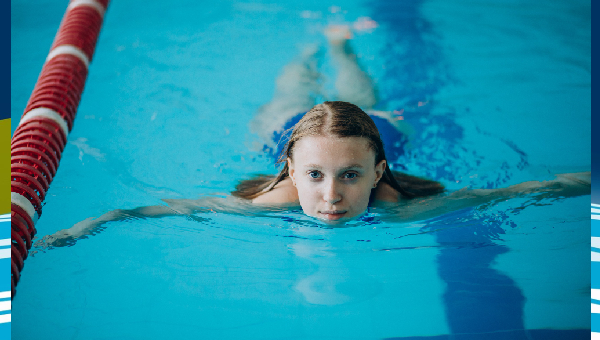Tiny Bites, Mighty Nutrition: Power-Packed Solids for Your Baby
Splish Splash Safety: Are Swimming Classes Safe for Kids?

Among the list of kinds of activities for children, swimming traditionally takes its place due to its great physical and psychological value. However, parents and guardians frequently ponder one crucial question: Is swimming class for the kids favorable? Familiarizing with the protective procedures, advantages, and disadvantages of swimming classes this article might assist parents in deciding whether or not it is safe for their children to attend swimming classes.
Swimming Classes and Their Significance
This awareness tells us that swimming is not a recreational activity only, but it is a life skill that if acquired can help save lives from drowning and enhance health. On its part, the CDC indicates that drowning ranks among the prominent cases of unintentional injury death in children aged 1-14. It is, therefore, possible to minimize this risk by enrolling children in swimming classes so that they can acquire important swimming lessons.
Precautions Taken in Teaching Swimming
To ensure the safety of children during swimming classes, several measures are typically implemented:
- Qualified Instructors: High-quality swimming centers have eligible tutors who also teach swimming and have undergone first-aid and CPR training. They acquired the background and qualifications necessary to instruct swimming lessons and at the same time make sure that safety is assured.
- Age-Appropriate Lessons: Lessons are usually delivered according to the chronological age and progress of the child, therefore catering to the child’s needs at that age. This approach assists in controlling accident cases and enhancing learning.
- Lifeguards on Duty: Instructors are needed since most swimming pools have lifeguards in classes to offer another line of safety and response just in case of accidents.
- Safety Equipment: Swimming aids like kick-boards and life preservers are also employed with children to ensure that more and more independence is built while at the same time ensuring that the child is safe. Other safety gadgets also accompany swimming pools such as non-slip floor and water depth indicators.
Evaluating the Risks
While swimming classes are generally safe, it is essential to acknowledge and address potential risks:
- Waterborne Illnesses: Water in pools contains bacteria and viruses provided that the pool has not been cleaned and well maintained appropriately. Parents need to ensure that they get their children enrolled in centers that maintain high standards of hygiene and sanitize as well as test the water and chlorinate it in the right manner.
- Physical Injuries: Accidents such as slipping, falling, and muscle injuries are very possible by the side of the pool. To reduce these risks, children should be informed on matters which they should adhere to in pools including; walking barefoot while in a pool and not running on wet slippery surfaces.
- Overexertion: Exercising a child or escalating a level may provoke a child’s exhaustion and a potentiality of accidents. The instructors should observe each of the child’s endurance levels and ensure that the children are given adequate breaks.
- Allergic Reactions: For other children, they may be allergic to chlorine or any other chemicals used in the pools. The parents should observe the children and if there are signs that manifest themselves to be allergic reactions, one should seek the services of a doctor.
Choosing the Right Swimming Program
Selecting a safe and suitable swimming program for your child involves careful consideration of several factors:
- Research and Reviews: Choose programs that are recommended by other parents and those that the users did not mark as unpleasant. Word of mouth from friends or relatives can also be of use here.
- Facility Inspection: Go to the swimming facility to monitor the hygiene of the swimming pool, measures taken to ensure that the clients are safe and the overall setting of the swimming facility. A client should follow the state of the pool the availability of safety devices and the demeanor of the employees.
- Instructor Credentials: Ensure that the instructors are qualified and have undergone the process of receiving an accreditation on water safety, cardiopulmonary resuscitation and first aid. Instructors having practical teaching experience are in a position to give students a safer environment to learn.
- Class Structure: Ask about the group sizes, ratio, if there is a teacher for each child and what they teach the children. Besides, one should stay focused on the acquisition of an effective program with small class sizes for higher individual attention and security.
- Parental Feedback: To get well informed try and talk to other parents who have had their children enroll in the program. They will also be useful in gaining information regarding the safety of the program and their experience in it.
Why It is Advantageous to Attend a Swimming Course
Despite the potential risks, the benefits of swimming classes for children are substantial:
- Drowning Prevention: Swimming ought to be taken as a course because it means the difference between life and death. Whenever a child is well trained on water and is well confident then they will not easily panic and most of the time they will be safe during water activities.
- Confidence and Independence: Effective swimming can help a child gain confidence and therefore the accomplishment can help build the child’s self-esteem. It also motivates independence and the feeling of self-achievement.
- Social Skills: Swimming classes give children a chance to socialize with other children and learn how to work in groups and be independent in social grouping.
- Cognitive Development: This is due to the discipline and concentration that one has to cultivate while practicing swimming lessons, these factors will foster better concentration and even better performance in school.
Conclusion
Various swimming classes, which are to be held safely and under proper supervision, harbor a large number of advantages without destabilizing the fact that they contain some hazards. Thus, parents can ensure their children get beneficial effects from the swimming classes, including the proper acquisition of swimming skills, by choosing an appropriate program with experienced educators and obeying safety measures. Precautions should also be taken as a reminder that children can only effectively learn and grow with their safety intact, especially in water activities.








